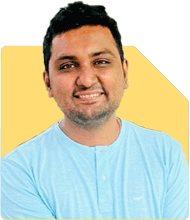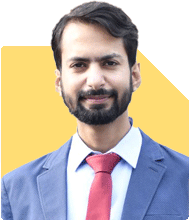Abhishek Shah | Answer |Ask -Follow
HR Expert - Answered on Jun 23, 2023

Hello Abhishek, my son recently completed BBI, now he is confused to decide further study. which is good for him, MBA or CFA?
I can provide some guidance to help your son make an informed decision between pursuing an MBA or a CFA (Chartered Financial Analyst) designation. Both paths have their own advantages and considerations, so it's important to assess your son's interests, career goals, and personal preferences.
MBA (Master of Business Administration):
An MBA is a versatile degree that offers a broader education in business and management. It covers various areas such as finance, marketing, strategy, operations, and leadership. Pursuing an MBA can be beneficial if your son aims to develop a well-rounded skill set, explore diverse business functions, and potentially move into management roles in various industries. It is particularly valuable for individuals seeking career advancement or aiming to start their own businesses.
CFA (Chartered Financial Analyst):
On the other hand, the CFA designation is highly specialized and focuses specifically on finance and investment management. It is a globally recognized certification that demonstrates expertise in areas such as investment analysis, portfolio management, financial planning, and ethics. If your son is passionate about finance, investments, or working in the investment industry, the CFA program can provide him with specialized knowledge and enhance his credibility in the field. It is particularly valuable for roles such as portfolio managers, research analysts, and investment advisors.
To make a decision, your son should consider the following factors:
Interests and Career Goals: Assess your son's specific interests within the broader business and finance field. If he enjoys a wider range of business functions and aspires to take on managerial positions, an MBA may be a better fit. If he has a strong passion for finance and desires a career focused on investment analysis and portfolio management, the CFA path may be more suitable.
Time and Commitment: Consider the time commitment required for each option. An MBA program typically lasts for one to two years, while the CFA program requires passing three levels of exams that can take several years to complete. Your son should evaluate his willingness to commit to the necessary time and effort for each path.
Networking and Industry Exposure: Evaluate the networking and industry exposure opportunities associated with each option. MBA programs often provide extensive networking opportunities through alumni networks and internship placements, while the CFA program offers access to a global community of finance professionals.
Financial Considerations: Assess the financial aspects of both options, including tuition fees, living expenses, and potential return on investment. MBA programs can be more expensive, but they may also lead to higher earning potential in the long run. The cost of pursuing the CFA designation primarily includes exam fees and study materials.
Ultimately, the decision between pursuing an MBA or a CFA depends on your son's career aspirations, personal interests, and long-term goals. Encourage him to thoroughly research and consider the pros and cons of each option, and perhaps seek advice from professionals currently working in the fields of finance and business management. This will help him make an informed choice that aligns with his interests and maximizes his career prospects.
Regards,
Abhishek Shah
You may like to see similar questions and answers below
Mayank Chandel |2576 Answers |Ask -Follow
IIT-JEE, NEET-UG, SAT, CLAT, CA, CS Exam Expert - Answered on Jun 21, 2023
Neeraj Batra | Answer |Ask -Follow
CA, CS, Commerce Expert - Answered on Aug 10, 2023
Patrick Dsouza |1429 Answers |Ask -Follow
CAT, XAT, CMAT, CET Expert - Answered on Jun 21, 2024
Ramalingam Kalirajan |10908 Answers |Ask -Follow
Mutual Funds, Financial Planning Expert - Answered on Dec 20, 2025
Ramalingam Kalirajan |10908 Answers |Ask -Follow
Mutual Funds, Financial Planning Expert - Answered on Dec 20, 2025
Naveenn Kummar |237 Answers |Ask -Follow
Financial Planner, MF, Insurance Expert - Answered on Dec 20, 2025
Ramalingam Kalirajan |10908 Answers |Ask -Follow
Mutual Funds, Financial Planning Expert - Answered on Dec 19, 2025
Nayagam P P |10859 Answers |Ask -Follow
Career Counsellor - Answered on Dec 19, 2025
Ramalingam Kalirajan |10908 Answers |Ask -Follow
Mutual Funds, Financial Planning Expert - Answered on Dec 19, 2025
Ramalingam Kalirajan |10908 Answers |Ask -Follow
Mutual Funds, Financial Planning Expert - Answered on Dec 19, 2025
Ramalingam Kalirajan |10908 Answers |Ask -Follow
Mutual Funds, Financial Planning Expert - Answered on Dec 19, 2025
Radheshyam Zanwar |6751 Answers |Ask -Follow
MHT-CET, IIT-JEE, NEET-UG Expert - Answered on Dec 19, 2025
Radheshyam Zanwar |6751 Answers |Ask -Follow
MHT-CET, IIT-JEE, NEET-UG Expert - Answered on Dec 19, 2025

























